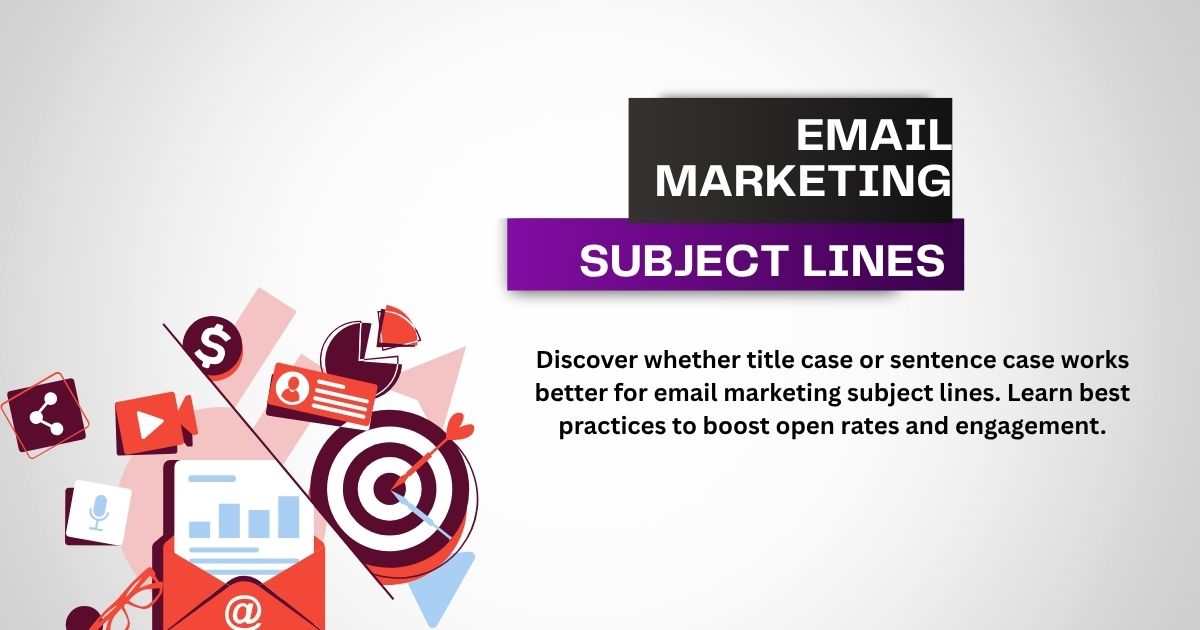
Subject lines can make or break your email marketing campaigns. A single word choice, punctuation mark, or capitalization decision influences whether subscribers open your message or send it straight to the trash. Among the many factors that determine open rates, capitalization stands out as one of the most debated topics in email marketing circles.
The capitalization of your subject lines affects readability, perceived professionalism, and even spam filter algorithms. Some marketers swear by title case for its polished appearance, while others prefer sentence case for its conversational tone. Understanding the nuances of each approach will help you craft subject lines that resonate with your audience and achieve your campaign goals.
The Psychology Behind Subject Line Capitalization
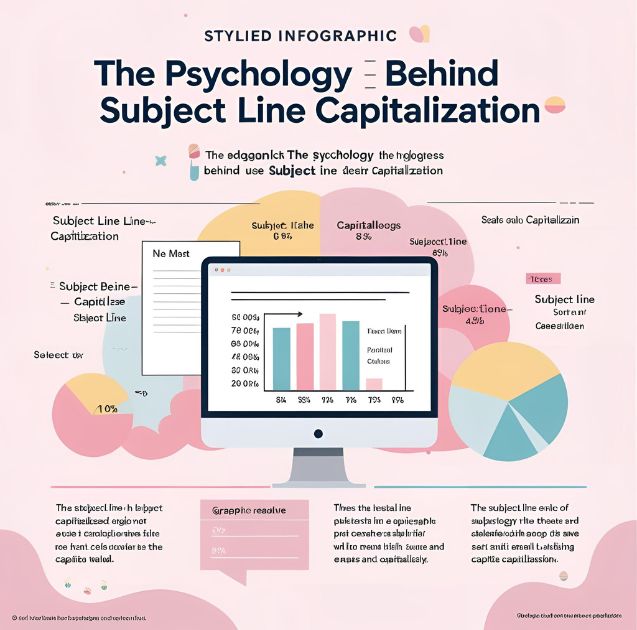
Capitalization shapes how readers perceive your brand and message before they even open your email. Research in cognitive psychology shows that people process different capitalization styles at varying speeds and associate them with distinct personality traits.
Title case (capitalizing the first letter of each major word) creates a sense of formality and importance. Readers often associate this style with headlines, book titles, and official announcements. When you capitalize “New Product Launch This Friday,” recipients may perceive your message as more newsworthy or urgent.
Sentence case (capitalizing only the first word and proper nouns) feels more conversational and approachable. Subject lines like “Thanks for your recent purchase” mirror how people naturally communicate in everyday conversation. This approach can reduce the psychological barrier between the brand and the subscriber.
All caps trigger strong emotional responses but rarely positive ones. Studies indicate that readers interpret ALL CAPS as shouting, which can damage brand perception and decrease open rates. Most email marketing platforms also flag excessive capitalization as a spam indicator.
Title Case: The Professional Standard
Title case remains the gold standard for many industries, particularly those requiring formal communication. Financial services, legal firms, and B2B companies often choose this approach to maintain credibility and professionalism.
The primary advantage of a title case lies in its visual impact. Capitalized words create natural breaks that help readers scan content quickly. Subject lines like “Exclusive Offer For Premium Members Only” draw attention to key terms while maintaining readability.
However, the title case requires careful execution. Incorrect capitalization can appear unprofessional and distract from your message. Articles (a, an, the), coordinating conjunctions (and, but, or), and prepositions under five letters should remain lowercase unless they begin or end the subject line.
Consider these properly capitalized examples:
- “How to Improve Your Email Open Rates”
- “The Best Marketing Strategies for Small Businesses”
- “Why Your Customers Are Leaving and What to Do About It”
Sentence Case: The Conversational Approach
Sentence cases have gained popularity as brands seek more authentic connections with their audiences. This style mirrors natural speech patterns and can increase engagement rates among younger demographics.
The conversational tone of sentence case works particularly well for lifestyle brands, e-commerce companies, and B2C communications. Subject lines like “Your order is on its way” or “Don’t miss out on summer savings” feel personal and approachable.
Sentence case also reduces the risk of capitalization errors. Writers only need to capitalize the first word, proper nouns, and acronyms. This simplicity can improve consistency across team members and reduce editing time.
Research from email marketing platforms shows that sentence case often generates higher open rates in casual industries. Fashion retailers, food brands, and entertainment companies frequently see improved engagement with this approach.
Industry-Specific Considerations
Different industries have established conventions that influence subscriber expectations. Healthcare organizations typically use title cases to convey trust and authority, while tech startups might prefer sentence cases to appear innovative and approachable.
Financial services face unique challenges with subject line capitalization. Regulatory requirements often dictate formal communication styles, making title case the safer choice. However, newer fintech companies successfully use sentence cases to differentiate themselves from traditional institutions.
E-commerce brands show the most flexibility with capitalization choices. Product-focused subject lines like “New arrivals just dropped” work well in sentence cases, while promotional messages such as “Limited Time: 50% Off Everything” benefit from title case emphasis.
B2B companies generally favor title cases for their professional appearance. Decision-makers in corporate environments expect formal communication, and sentence cases might appear too casual for high-value transactions or important announcements.
Impact on Deliverability and Spam Filters
Email service providers use complex algorithms to determine whether messages reach the inbox or spam folder. Subject line capitalization plays a role in these calculations, though it’s just one factor among many.
Excessive capitalization triggers spam filters more frequently than proper title cases or sentence case. Subject lines with multiple capitalized words in succession, such as “URGENT ACTION REQUIRED NOW,” often face deliverability challenges.
Mixed capitalization patterns can also cause problems. Random capitalization like “gReAt DeAlS aWaIt” appears suspicious to both automated filters and human readers. Consistency in your chosen capitalization style helps maintain sender’s reputation.
Modern spam filters have become more sophisticated, focusing on overall message quality rather than individual elements. However, maintaining professional capitalization standards supports your broader email marketing goals.
Testing Your Way to Success
A/B testing remains the most reliable method for determining the optimal capitalization strategy for your specific audience. Split your subscriber list and send identical emails with different subject line capitalization to measure open rates, click-through rates, and conversion metrics.
Test variables systematically to isolate the impact of capitalization. Send the same promotional message with title case to one group and a sentence case to another, keeping all other elements constant. Run tests across multiple campaigns to identify consistent patterns.
Consider segmenting your tests by subscriber demographics, engagement history, or acquisition source. Different audience segments may respond differently to capitalization styles, allowing you to personalize your approach.
Document your testing results and share findings across your marketing team. Consistent capitalization guidelines based on real data will improve campaign performance and maintain brand consistency.
Best Practices for Email Marketing Subject Lines
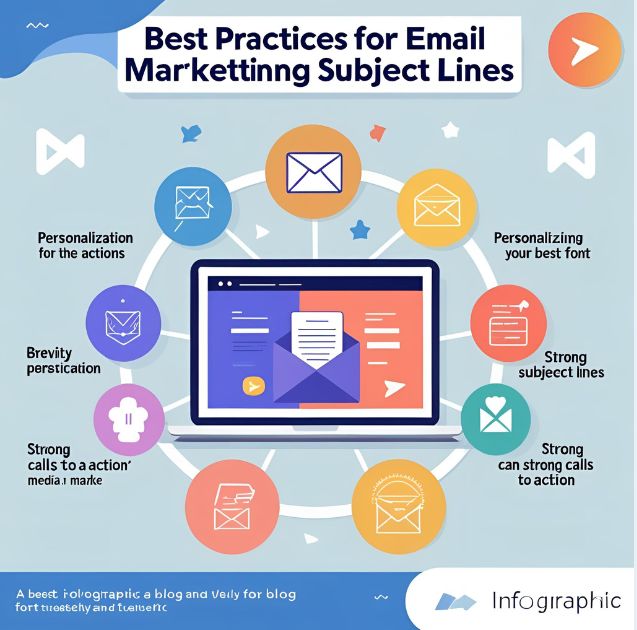
Regardless of your capitalization choice, certain principles apply to all effective subject lines. Keep your messages concise, with most email clients displaying only 30-50 characters on mobile devices.
Avoid misleading capitalization that doesn’t match your email content. If your subject line promises “Breaking News About Your Account,” ensure your message delivers genuinely important information.
Consider your brand voice when making capitalization decisions. Luxury brands might benefit from title case formality, while casual brands could connect better with sentence case approachability.
Maintain consistency across your email marketing campaigns. Switching between capitalization styles confuses subscribers and weakens brand recognition. Choose an approach that aligns with your overall communication strategy.
Making the Right Choice for Your Brand
The decision between title case and sentence case depends on your brand personality, target audience, and industry context. Professional service providers often find title cases more effective, while consumer brands may see better results with sentence cases.
Consider your email marketing goals when making this choice. If you’re building authority and trust, a title case might serve you better. If you’re fostering community and engagement, sentence cases could be more effective.
Remember that subject line capitalization is just one element of successful email marketing. Focus on creating valuable content, maintaining list hygiene, and optimizing send times alongside your capitalization strategy.
Elevating Your Email Marketing Strategy
Subject line capitalization might seem like a minor detail, but it significantly impacts how subscribers perceive and interact with your emails. Whether you choose title case for its professional polish or sentence case for its conversational warmth, consistency, and testing will drive the best results.
Start by analyzing your current email performance and identifying opportunities for improvement. Implement A/B tests to determine which capitalization style resonates with your audience, and use those insights to refine your email marketing approach. Your subscribers will notice the difference, and your campaign metrics will reflect their increased engagement.



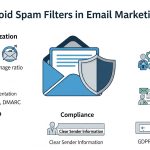











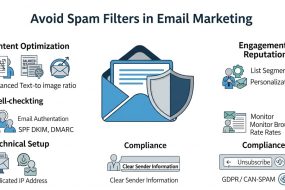


No Comments